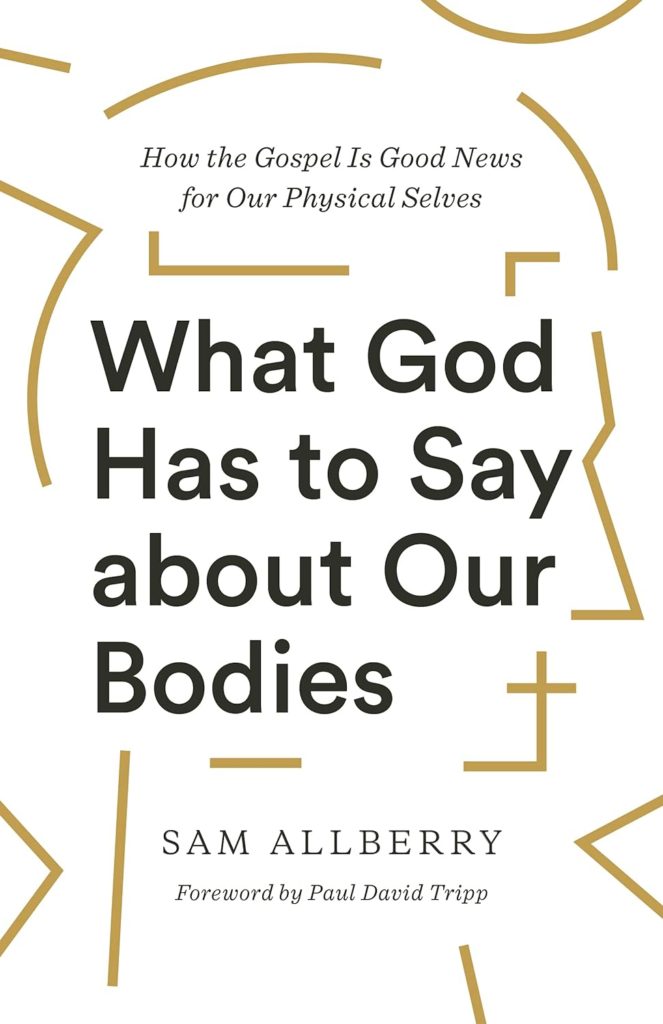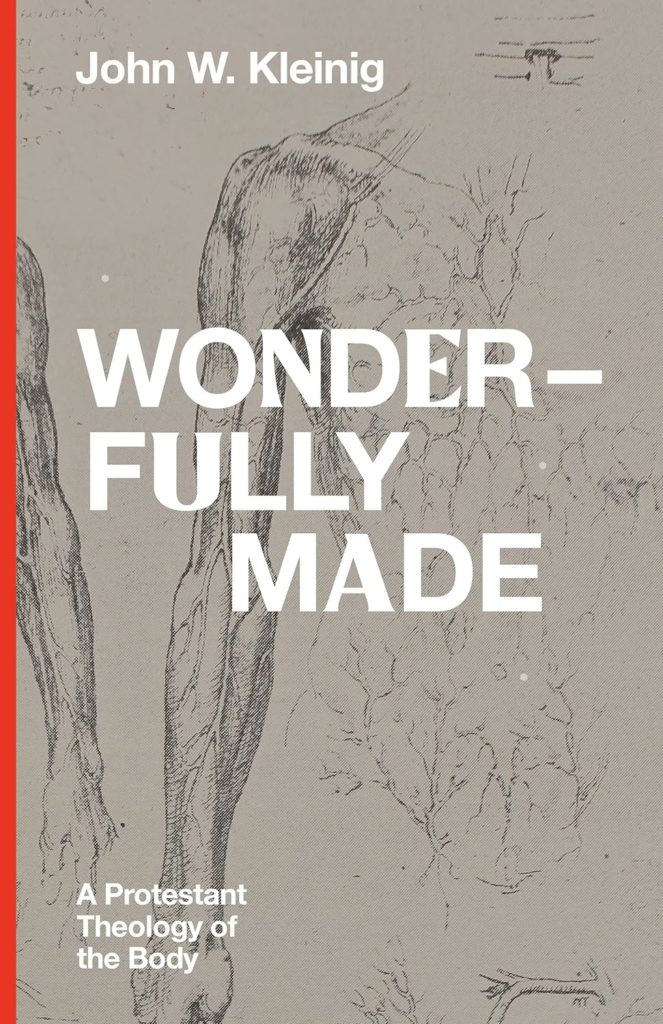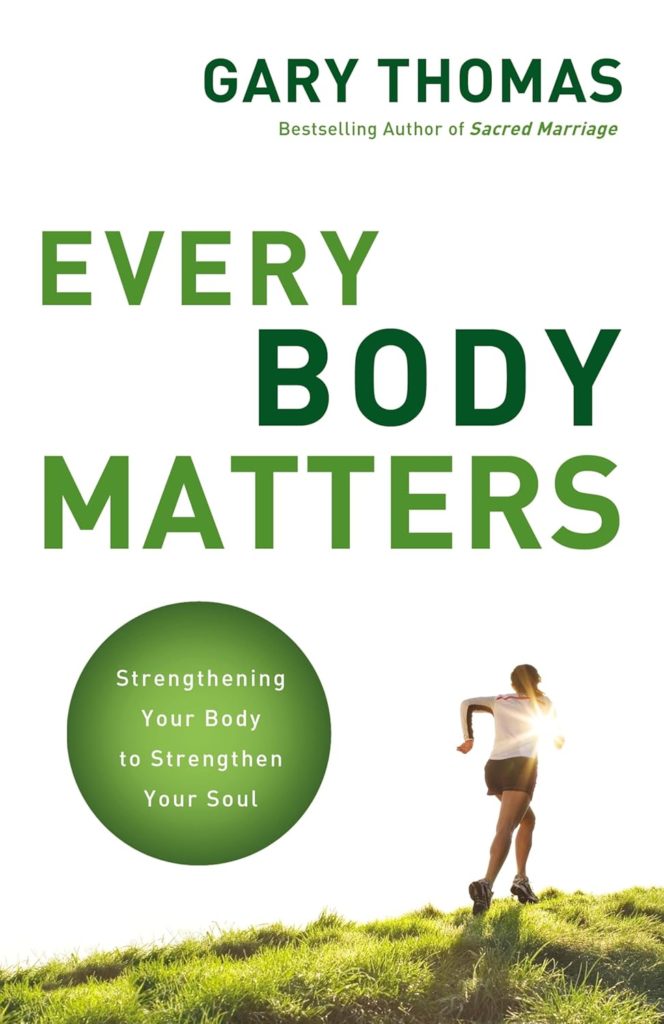As a Christian who has been interested in physical fitness since adolescence, I often struggled with an integration of my Christian worldview and my love of fitness. While this is still an area of active discovery for me, it helped me to write out my big-picture thoughts on this topic while I was a PhD student studying kinesiology and nutrition. The resulting article is essentially a collection of verses relevant to a Christian’s view of the body with my comments.
I think that multiple themes within the Bible can inform a Christian’s pursuit of physical fitness. Two that may be particularly important are understanding God’s view of our physical bodies and appreciating the concept of whole-life stewardship.
Here are two helpful books detailing the biblical view of our physical bodies:
What God Has to Say about Our Bodies: How the Gospel is Good News for Our Physical Selves (book by Sam Allberry). This is a wonderful book packed full of biblical perspectives on how Christians should view our physical bodies. When I typed up my favorite quotes from the book, it resulted in a document over 5,000 words long! This book is organized into three main sections – Created Bodies, Broken Bodies, and Redeemed Bodies – each of which contains three to four individual chapters. The book’s writing is quite accessible, and it’s modest length (<200 pages of actual content) make it a fairly quick read. One quote from the introduction nicely sets the stage for where Allberry takes the discussion: “Your body – my body – is not just there, happening to exist. It means something to God. He knows it. He made it. He cares about it. And all that Christ has done in his death and resurrection is not in order for us one day to escape our body, but for him one day to redeem it.”
Wonderfully Made: A Protestant Theology of the Body (book by John Kleinig). This book initially jumped out at me due to the classic anatomical drawings adorning the front cover and the thought-provoking question, ‘Why do we have bodies?’ on the back cover. Unlike the previous recommendation, this book takes quite a bit of thought and time to fully digest. The style and level of detail make this a more challenging read, but there is much rich truth within its pages. I wouldn’t personally recommend this as a first foray into books about biblical perspectives on the human body, unless you have a pretty thorough background in theology and enjoy traditional theological writing. The chapters of this book include: Body Matters, The Created Body, The Redeemed Body, The Spiritual Body, the Sexual Body, The Spousal Body, and The Living Body. I am still compiling my favorite quotes from this book, along with some commentary, but here is one passage from the early chapters that stood out to me: “The body matters much more than we usually imagine it does. It matters because it locates us in time and space here on earth. It matters because we live in it and with it. It matters because through it we interact with the world around us, the people who coexist with us, and the living God who keeps us physically alive in it. It matters even though it is so fragile and so easily damaged. It matters even though we rebel against our Creator and abuse our fellow creatures on earth. It matters even though it is finite and doomed to die. Most of all, it matters to us because it matters so much to God. He is the supreme philanthropist, the lover of humanity (Titus 3:4).”
Some books have also explicitly integrated a Christian worldview with physical fitness, rather than just discussing physical bodies in general. One such book is listed below.
Every Body Matters: Strengthening Your Body to Strengthen Your Soul by Gary Thomas. This was one of the first books I read as I began to consider how my Christian faith intersected with my educational and extracurricular pursuits related to physical fitness. It was impactful on my thinking because it was one of the first times I encountered a Christian leader explicitly addressing the topic of physical fitness. According to Thomas, ‘this entire book is focused on becoming “holy, useful to the Master, and prepared to do any good work.”’ While I have over 4,000 words of quotes and notes from this book, some of the foundational concepts are nicely captured by this statement from Thomas: “How we treat our bodies is a question of stewardship even before it is a question of health, comfort, enjoyment, or pleasure. If we’re truly going to be made holy, useful to the Master, and prepared to do any good work, being more energetic and even being healthier can be essential elements of effectiveness. Many issues of disability and illness are beyond our control; they fall under the providence of God and the genes he has given us. But many issues – how often we exercise, the amount and quality of the calories we take in – are entirely a matter of choice, and these are what we are held accountable for.”
Note: As an Amazon Associate I earn from qualifying purchases.


